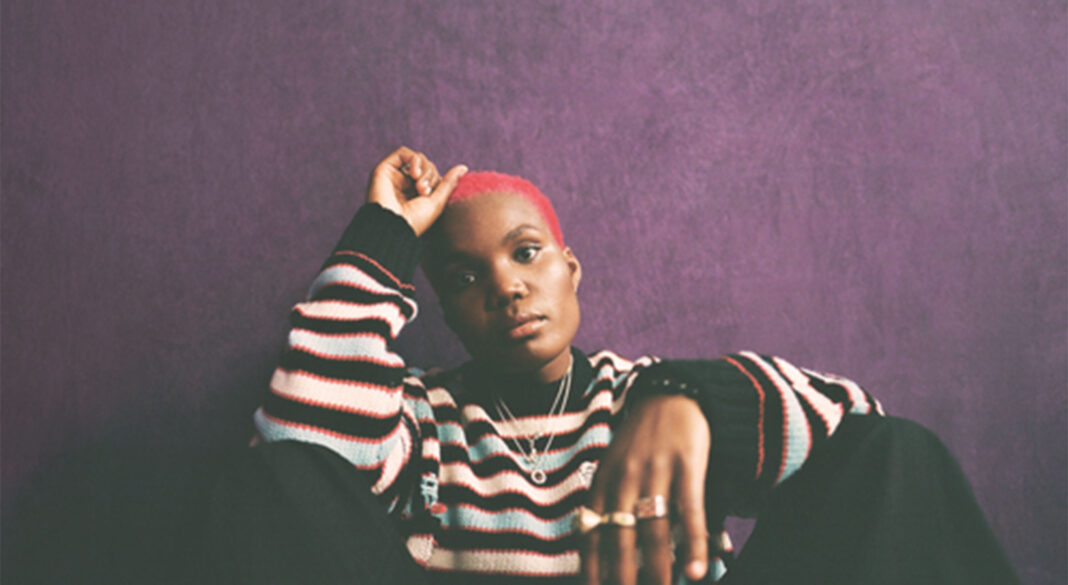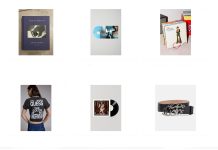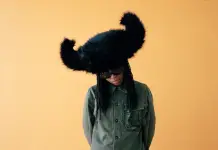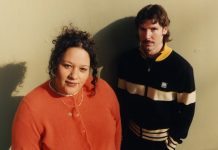When somebody has new music out, it’s normal for there to be some debate about their sound, the kind of influences or ideas that they channel most. When you’re a woman, however, there is every chance that anything you have previously said or shown about your interests will be totally overlooked in favour of preconceptions that are based on what you look like. Such was the case this week for Arlo Parks, who found herself sitting pretty on a music publication’s list of “15 Women Who Are Killing The Hip-Hop Game Right Now”.
With every right to be irritated at this strange appraisal of her indie singer-songwriting, Parks called it out with customary grace and positivity: “All I will say is that if you are a Black person make whatever you want to make regardless of the boxes that people try and fold you into – you’re on the right path.” The publication responded with a heart, leaving her no option but to tweet again: “Not sure y’all quite grasped what I was saying with this one lol”.
To give the writer the full benefit of the doubt, there potentially is a world where Park’s enthusiasm for spoken word might be construed as rap, placing her closer to the hip-hop world. And yet, it is more likely that this particular mischaracterisation of her work (which they still haven’t amended) speaks to a much wider issue with our fixation on genre, particularly the assumption that Black artists must only be interested in hip-hop and R&B.
In the summer of 2020, many music industry folk pledged to do better. There was talk of dismantling entire ‘urban’ divisions at record labels, of putting in more work at newspapers to ensure that one Black artist’s press shot was never accidentally mixed up with another. There were pushes to diversify playlists and festival lineups, to bring in new voices at white, male-centric publications. Some of this stuff has happened, and yet, three years later and with old habits creeping in, it still remains the case that Black women are frequently mislabelled (like Arlo), or otherwise looked upon with doubtful curiosity, questions about ‘flying the flag for a certain genre” dogging them long into their career.
But why do they have to be flying the flag for anything? While there is nothing wrong with artists of colour taking pride in being ambassadors for change, there are just as many others who want to get on with making music without their race being the main topic of conversation. I recently interviewed the LA punk group Zulu, who put it plainly: when was the last time a writer felt the need to describe a group as ‘all-white’ or ‘all-male’, or to ask the members how they felt about being ‘white in the scene’? Why is there never any acknowledgement that Black kids were in those scenes all along, just nobody cared to champion them? When music journalists write about increasing representation, they often mean extremely well. But when it becomes the main thrust of the feature, or when they suggest that Black artists making anything other than hip-hop is something entirely ‘new’, it can also serve to highlight differences in unhelpful ways, to suggest that the appeal of their artistry is nothing more than tokenised novelty.
In the case of Parks, Rachel Chinouriri or Connie Constance, women in particular find that they can speak up regularly about their guitar-based inspirations, and still get quickly categorised as ‘alt-R&B’. Constantly forcing adjacency to something that a racist eye and ear can understand, it becomes easier to impose what these artists should sound like than it does to actually respect their creativity, to acknowledge that they’re just as likely to have grown up listening to Radiohead as Destiny’s Child.
On their brilliant single ‘RnB’, Lily Fontaine of Leeds band English Teacher put it plainly: “If I have stuff to write, then why don’t I just write it for me/ Despite appearances, I haven’t got the voice for R&B.” And yet, it takes a real boldness as an artist of colour to stick to what you actually want to make, to not be put off by music executives who tell you that it would be easier if they could package you in a certain predictable way. Cat Burns is perhaps another good example: though her music is unmistakably pop, the words that creep in when people describe her — ‘soulful’, ‘slow jams’, ‘gospel-tinged’ — feel like lazy shorthand for somebody with a lot else besides going on, and who has undoubtedly fought for the kind of mainstream crossover that is startlingly rare for a queer, dark-skinned black woman.
Though Burns seems to be taking it in stride, other artists, like VV Brown, are drawing on years of industry experience to make music which actively calls out this lack of nuance, demanding space to explore music with the same genre-fluid freedom that white artists are so often praised for. In press materials for her forthcoming album, ‘Black British’, Brown spoke of her desire to explore everything, stepping away from big company marketing to do whatever felt right to her. “It’s commercialisation versus artistic purity, and I chose purity. If my next album is a metal album, so be it.”
As Brown suggests, there is rarely much industry interest in supporting Black girls with diverse interests, despite the regular acceptance that streaming has exposed people to more sounds and styles than ever before. Perhaps some of it comes from a well-meaning place: R&B lovers are so proud of their genre and so determined to keep it alive that they want to keep hold of their favourites, not wanting to lose them to historically-white dominated fandoms. And yet, this love can also be smothering. SZA, an artist who has long made clear her love of alternative rock and its influence on her songwriting, faced just as much online critique for collaborating with Phoebe Bridgers as she did appreciation, people wondering if she was hopping on some kind of trendy bandwagon. Lizzo has also been called out for ‘selling out’ to white audiences by going ‘too pop’, apparently turning her back on her early rap-inspired sound.
Here in the UK, FLO have been tagged so strongly with the ‘nostalgic R&B’ label that little room has been made for them to express anything else. As three smart young women with minds of their own, they’ve at times felt unfairly pitched as a tribute act, criticised for not living up to standards of Destiny’s Child as if that’s their sole reason for being. They clearly love the genre and want to uphold it, but little over a year since their debut, they’re already being expected to carry an incredible weight, held to oppressively high standards.
Similar has been happening with Chloe Bailey. Like FLO, she seems caught in a dichotomy of being too polished to be likeable (something that has been historically thrown at black female stars), and yet not polished enough to be a true R&B superstar. A tweet about how she has misread her audience is going viral, claiming that she has tried too hard on her debut album to appeal to a certain demographic. But with so many mixed messages from the industry about what a young Black female artist can and should be, is it any wonder that she might feel a little lost?
Though Chloe Bailey, FLO, VV Brown, SZA and Arlo Parks all experience racial scrutiny differently, the thing that ties them together is a sense of limited expectation. Genres like R&B and Hip-Hop need to be nurtured, scenes grown, respected and developed. But we also need to make room for nuances, especially in the streaming age. So many of this new generation’s artists were raised to explore and experiment; why wouldn’t we celebrate that evenly across the board?
As writers, we also have a big part to play in this. Cramming loosely-related women onto one list does not make a scene seem healthier, nor does it drive any kind of sustainable attention back to the artist. It doesn’t take an especially attentive ear to know that Arlo Parks isn’t a rapper, but even more generally, we can all do better when it comes to finding creative ways to describe Black women’s music, not resting on the same old metaphors or racialised comparisons.
If the 2020 mainstreaming of the BLM movement was about shedding light on serious atrocities and threat to life, being a true, long-term ally to the cause also means contending with the smaller issues, taking the time to think about how our language adds up to a bigger picture of oppression, exclusion and misrepresentation. Until a time where “What’s it like to be black in this genre?” is no longer headline bait, or lists of ‘15 Hip-Hop women’ don’t even need to exist, there’s always more work to do to uplift artists on terms that feel true to what they’re making; not just to what we assume from the colour of their skin.
READ MORE: MICHELLE interview: “What we look like isn’t everything we are”







